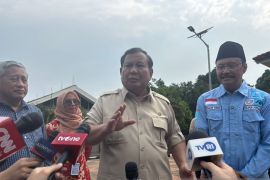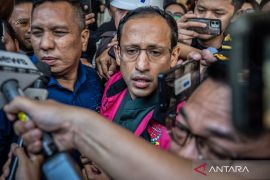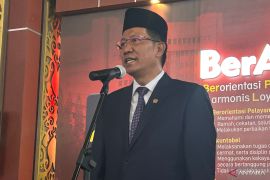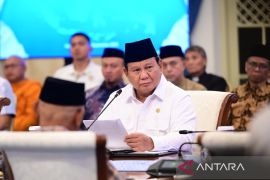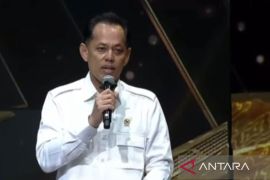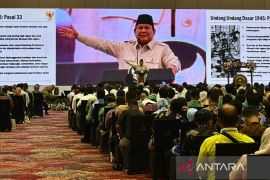"Many corruption cases in Indonesia have yet to be handled properly partly due to lack of strict law enforcement," he said.
Mahfud said high ranking government officers were involved in corruption but their cases has remained unresolved.
Referring to this reality, the government`s firm stance on combating corruption questioned, he said.
"During President Susilo Bambang Yudhoyono`s first term, the government was so serious in handling state officials` alleged corruption cases," he said.
The president`s seriousness could be seen from the speed at which the president issued questioning permits, he said.
At the time, the questioning permits were issued within a maximum of two weeks, he added.
Corruption in Indonesia has remained a serious problem as shown by the outcome of annual corruption perception index (CPI) surveys.
Referring to the outcome of the 2010 CPI survey conducted by Transparency International Indonesia (TII) released in October 2010, Indonesia`s CPI score remained at 2.8, unchanged from that of the previous year.
With the CPI score, Indonesia remained in 110th position out of 178 countries that 10 independent institutions had surveyed from January 2009 to September 2010, the TII activist, Todung Mulya, said.
Indonesia`s position was only better than Myanmar`s but far left behind by Singapore, Brunei Darussalam, Malaysia and Thailand, he said.
Muhammadiyah leader, Din Syamsuddin, said combating corruption needs concrete and serious action, not just a rhetoric.
For Nahdlatul Ulama (NU) advisory council leader KH Masdar Farid Mas`udi, corruption was an unforgivable extraordinary crime.
"The impacts of corruption on a country are so extraordinary. Corruption is a big crime that can threaten a country`s life," Mas`udi said recently.(*)
T011/R013/HAJM/A014
Editor: Jafar M Sidik
Copyright © ANTARA 2011





